The hand painted vase of bulbous form with funnel-shaped neck with gold rim, the body with rich relief decoration of countless flowers with yellow centers, arranged in rows, some roses, blue flowers and green leaves set in front. The piece made of moulded porcelain in the "snow globe" technique /Schneeballen/Boule de neige/, with overglaze painting. Very unique style. Salt cellar is a gorgeous and extremely rare antique piece. Beautifully crafted with roses, flowers, and leaves throughout. The colors are beautiful and very unique. Absolutely a special and unique piece. Blue maker's mark in the shape of an anchor with ligatured "B" on both pieces bases. The Ernst Bohne Söhne Rudolstadt porcelain factory emerged from porcelain decorating studio opened by Ernst Bohne in 1848. In 1850 a kiln was built but the porcelain factory is thought to be founded in 1854. Ernst Bohne died in 1856. The company was continued by his three sons Gustav, Karl and David. At the beginning of the 20th century, the company was run by David's children, Bernhard Bohne and Martha Suhr. In the 1870s and 1880s, the Ernst Bohne Söhne's porcelain was recognized with several awards. The factory has been known for its ivory imitations, Capo Di Monte imitations, biscuit figurines, and Dresden-style porcelain items. Ernst Bohne Söhne had trade representatives in Berlin, Hamburg, Vienna, Paris, and London. The anchor mark was used from 1878 onwards (mostly with letters E.B.S.). Capodimonte mark (N with a crown above) was used on imitations and export porcelain from 1901 to 1920. The Ernst Bohne Söhne Rudolstadt branch was taken over by Albert Stahl and renamed Albert Stahl & Co.
Dimensions: vase - height 8,2 cm, diameter 7,3 cm; salt cellar - height 6 cm, width 9 cm, depth 7 cm.
Condition: expected small chipping of leaves and flowers completely unnoticeable. In general excellent antique condition.
Please, study the accompanying photographs carefully as they form an integral part of this description. The item will be shipped with full tracking and insurance. It is important to note that shipping costs include labour, packaging and postage.









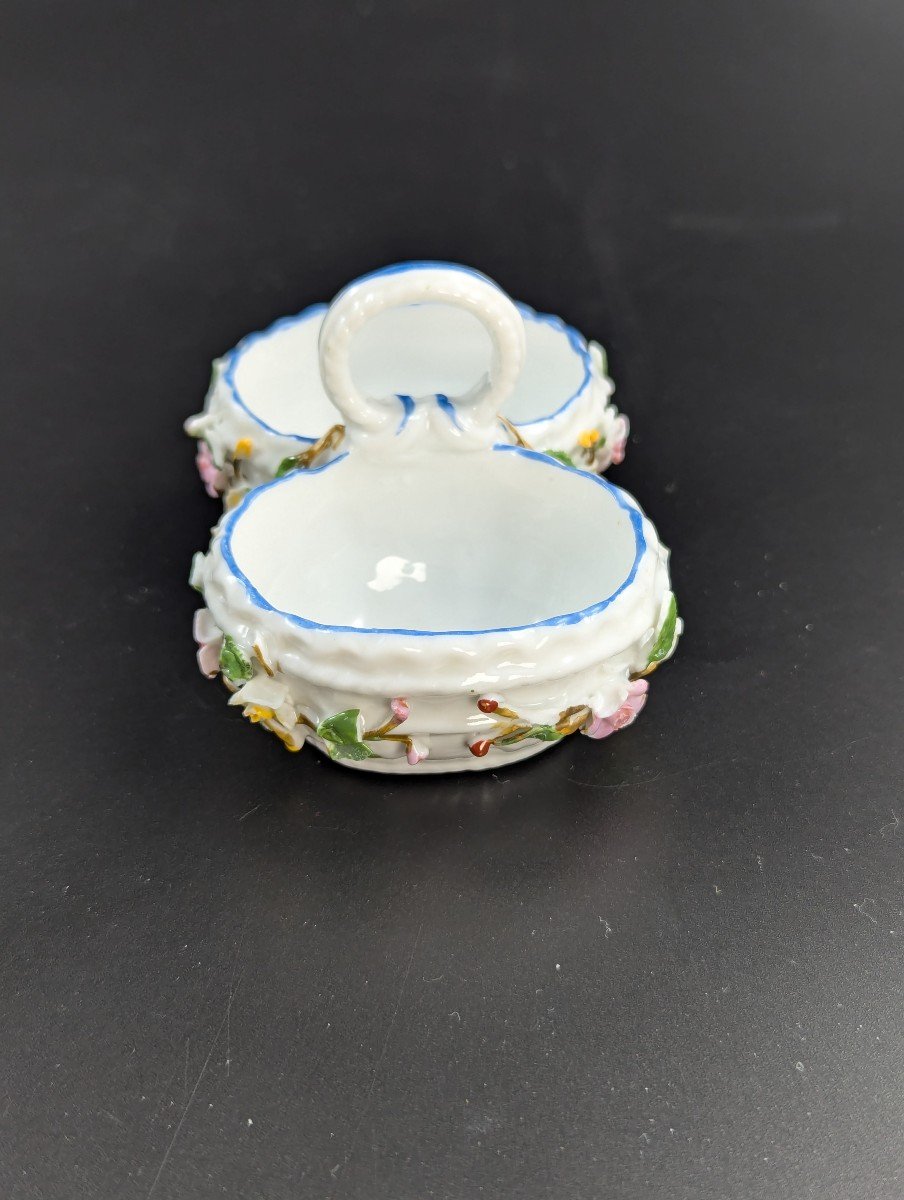















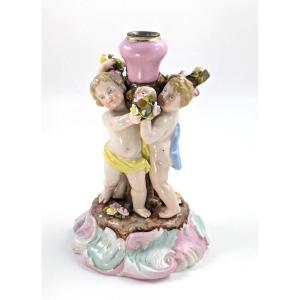





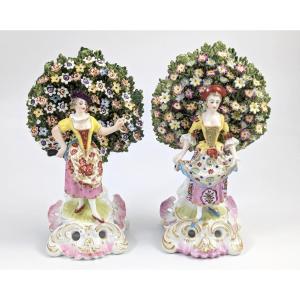







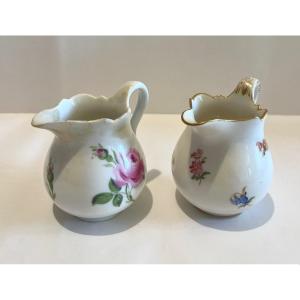
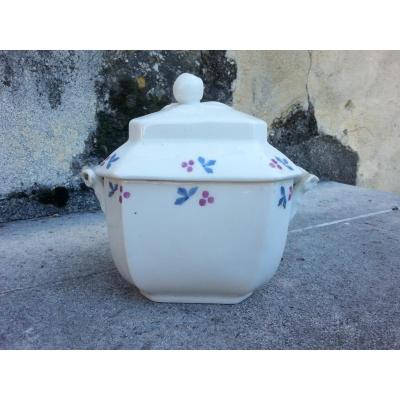
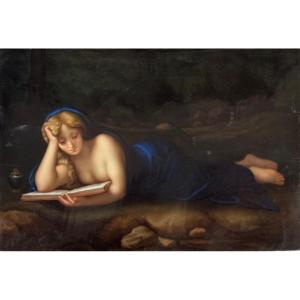




 Le Magazine de PROANTIC
Le Magazine de PROANTIC TRÉSORS Magazine
TRÉSORS Magazine Rivista Artiquariato
Rivista Artiquariato